Graham Reid | | 10 min read
The Doors: The Wasp (Texas Radio and the Big Beat)
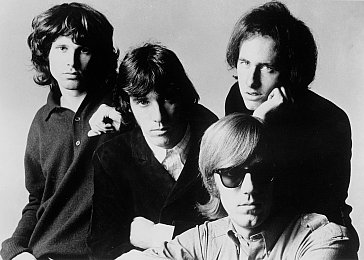
When it came to watching the rapid decline of Jim Morrison – and the Doors' once promising career being relentlessly dragged down with him -- John Densmore had the best seat in the house.
From his drum stool he saw it all – from the thrilled and awe-struck audiences as the handsome and sexually electric Morrison in leathers delivering his rock poetics through to the increasingly booze-addled Jim washing it away in an ocean of ego, self-delusion and cheap wine.
Densmore – a self-confessed “jazz snob” – had been there from the beginning and was there after Morrison's death when the remaining Doors (guitarist Robbie Krieger and keyboard player Ray Manzarek) carried on for two further albums ,Other Voices and Full Circle (“but nobody could fill Jim's pants,” laughs Densmore) and then added their music to the late Morrison's voice for the album An American Prayer in '78.
But those three albums were the trickling coda to the Doors who launched themselves with their singular self-title debut in January '67 and closed it off with LA Woman in 1971.
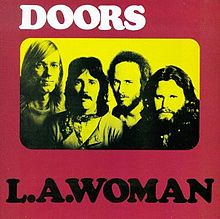 Given Morrison's condition and the
circumstances surrounding it, the bluesy LA Woman – now reissued on
its 40th anniversary with a wealth of rehearsal material
and two previously unreleased tracks – should never have been as
good as it is.
Given Morrison's condition and the
circumstances surrounding it, the bluesy LA Woman – now reissued on
its 40th anniversary with a wealth of rehearsal material
and two previously unreleased tracks – should never have been as
good as it is.
Morrison had tired of the Doors and wanted to become a poet, and the appeal against the court case over him allegedly exposing himself at a concert in Miami was hanging over them. (He didn't said Densmore, “if he had, he would have tripped”.)
Also, after a couple of days in the studio their longtime producer Paul A Rothchild walked out saying he just couldn't stand going through it all again when he heard them noodling around with no real material. Rothchild dismissed one piece as cocktail music. It was either Love Her Madly or Riders on the Storm depending on who you believe.
Either way . . .
Yet LA Woman – which included Love Her Madly, Crawling King Snake, The WASP (Texas Radio and the Big Beat), and Riders on the Storm – is widely considered the most complete, coherent and convincing album in the Doors catalogue.
And Jim Morrison died in Paris three months later.
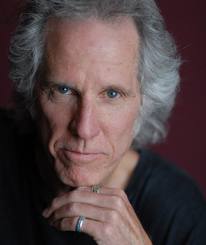 Elsewhere asked the direct and droll
67-year old grandfather John Densmore – who has litigated against
his former band members for using the group's name (they toured as
“The Doors in the 21st Century”) and prevent Doors
music being used in ads – about all of this.
Elsewhere asked the direct and droll
67-year old grandfather John Densmore – who has litigated against
his former band members for using the group's name (they toured as
“The Doors in the 21st Century”) and prevent Doors
music being used in ads – about all of this.
How do you feel about LA Woman these days when you listen back? A bit of pride but also tempered with a bit of sadness that this was the final flourish?
Well, I knew Jim was going down but I was very pleased that somehow, despite his self-destruction, when we rehearsed and wrote songs and recorded he showed up, he pulled it together. When people ask me what are my favourite [Doors] albums I always say LA Woman and [second album] Strange Days. Strange Days because we got more relaxed in the studio and began experimenting and having fun.
But LA Woman was the return to our roots, we did it in our rehearsal garage like the original garage of Ray's parents and I was pleased we got back to our essence.
Did it help that Rothchild [who died in '95] was out of the way?
Yes it did, may he rest in peace. He taught us how to make records and he was a great guy, a bit domineering (laughs) but after a few albums when we knew how to make albums he would push us to many, many takes, possibly here and there beyond what was necessary. But when Bruce Botnick, our longtime engineer said . . . You know you have to get a sound on each instrument and it would take an hour with Paul, and with Bruce it would take 20 minutes and we only did a couple of takes on everything and that was brilliant.
That album sounds more spontaneous and in the alternate takes you get a real sense of that coming through, that this was more on the fly.
Definitely, The Soft Parade [their third album] was the pinnacle of 4,000 takes! This has a lot of life force and that's what pleases me. The groove on LA Woman is infectious. Oh, am I complimenting myself? (laughs)
My understanding is that Botnick said somewhere Jim was not drinking that much at the time.
I think that's correct, I think [Jim] was empowered by the idea we were co-producing with Bruce and we were thinking we were the bosses and stepping up to the plate.
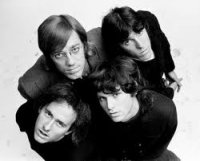 Then you went on the road and it must
have been terrible to witness that dramatic decline, just two shows
on the tour and Jim collapsing at the second. And that was it.
Then you went on the road and it must
have been terrible to witness that dramatic decline, just two shows
on the tour and Jim collapsing at the second. And that was it.
That was my cross to bear. I found my path in life which was music . . . and there's a crazy guy in the band who is so talented. Creativity and self-destruction don't always come in the same package, but with Jim they did. That was a hard one.
But you know, I gave him the most negative vibes about what he was doing to himself and he knew I disapproved and some people have said . . . in one book someone said about the Miami incident I held my sticks so tight my knuckles were tight with rage over Jim. Well, that's called tough love.
The love is very deep now. I have a new book coming out called . . . um . . .(laughs). That's the struggle with the publisher. Will it be The Doors, Unhinged? (laughs), Jim Morrison's Legacy Goes Up on Trial (laughs) . . . something like that.
Here I am standing up for the guy as much as possible because he's dead and he disapproved of some things in the past and I won't forget them.
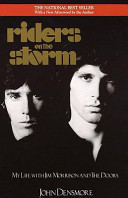 Do you think he believed his own
mythology?
Do you think he believed his own
mythology?
That's an interesting question because I wrote in my first book Riders on the Storm that when Jim got a lizard skin suit – he changed the leather pants for lizard – and said 'I am the Lizard King and I can do anything', it was a line like an actor would deliver. But I wondered if he was believing his own myth.
And then he couldn't breathe with his new skin! (laughs)
So later he was asked if he – and this is in my new book – if he could have it over would he do it differently. And he said 'Yeah, it's probably be kind of a quiet artist working in his Zen garden' or something like that. Well, I think now he's very happy (laughs)
At the end of my new book I say he's looking down on all this squabbling and laughing his arse off at all the attention.
I've been to the grave in Paris and I think it's tragic looking at those kids there drinking. What is they are looking for?
Greil Marcus wrote a book on the Doors [The Doors; A Lifetime of Listening to Five Mean Years] and he really nailed what I was up to in describing my drumming, and we'll talk about that. But he said he doesn't like this idea that the Sixties was this glorious time and if you were too young you missed it, and I agree.
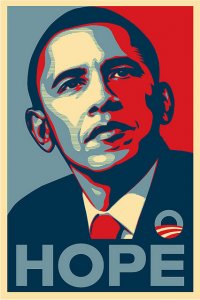 It was glorious and a renaissance, but
it was also dark as hell with Vietnam, so really . . .
It was glorious and a renaissance, but
it was also dark as hell with Vietnam, so really . . .
The Occupy Movement, the Hopi prophecy . . . Gee maybe this will be more exciting than the Sixties?Don't just get high, get out there and do something (laughs)
Have you seen the cover of Time magazine? The person of the year is the protestor, and my friend Shepard Fairey who did the Obama 'hope' poster did it. It's great.
And guess whose cover he's doing next? My book cover.
I'm quite inspired by everybody getting out on the street and fighting inequality, and this new book is about that.
Because the Doors were offered obscene amounts of money to sell songs for commercials and Jim didn't like that when he was alive. And people think I am anti-American for not being greedy. But this is what's in the air.
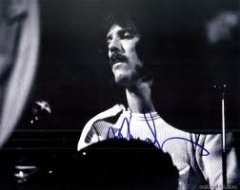 Let's talk about the music. The
longevity of the Doors was because they never belonged to any school
or movement, and certain hippie rock stuff sounds locked in a period
when you hear it now. Fair to say?
Let's talk about the music. The
longevity of the Doors was because they never belonged to any school
or movement, and certain hippie rock stuff sounds locked in a period
when you hear it now. Fair to say?
No Graham, the longevity is due to the drumming (laughs)
What can I say: Jim had all these incredible words and we were a melting pot of jazz, classical, flamenco, blues and we somehow came up with decade-busting music. I don't know.
If I say too much it'll sound like I've got helium in my upper chambers.
The Doors' story is constantly being told and retold and I watched the doco When You're Strange a while ago, but it always seems to me that any Doors story starts off as a band story and then it becomes the Jim Morrison tragic arc. Do you feel marginalised sometimes in your own story?
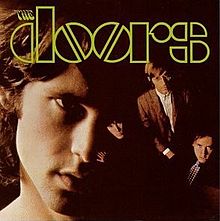 Yeah. In my first book I talk about how
on the first album cover his head was so big and mine was so small,
and then I thought that I'd probably sell copies of Soldier of
Fortune . . . and he was so good looking. And as time went on I
noticed the bright spotlight on the lead singer is dangerous. I was
on the periphery and just got singed a little. That much attention is
big. You got to stay grounded.
Yeah. In my first book I talk about how
on the first album cover his head was so big and mine was so small,
and then I thought that I'd probably sell copies of Soldier of
Fortune . . . and he was so good looking. And as time went on I
noticed the bright spotlight on the lead singer is dangerous. I was
on the periphery and just got singed a little. That much attention is
big. You got to stay grounded.
How did you stay grounded?
Well, he was an example of going too far so I dabbled.
And were smart enough to pull back?
Yeah, now and then. (laughs)
Let's talk about your drumming. You came from a jazz background and you have been getting back into that more recently. Must have been interesting to be in a rock band when you might have referred to be in jazz band, like Charlie Watts.
Yeah, I was jazz snob and then I saw these mop-tops from England and thought “Are they gay?' although that wasn't the term we used then. But it was infectious music and I certainly knew about Elvis and respected him. But when I got in the Doors I thought I could bring the jazz sensibilities I witnessed seeing Elvin Jones playing with John Coltrane which was free at times and they would have a conversation.
I would have a conversation with Jim. For some reason I would stop the beat in When the Music's Over and he'd sing 'what have they done to the Earth?' and I would go DUMDUMDUM DUM. 'What have they done to our fair sister?' BANG BANG and then a little later I'd go back into the groove. I think that came from jazz.
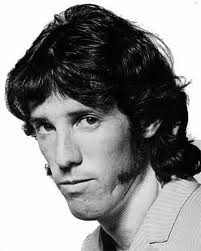 You have an ability to put an emphasis
in various places which is not a rock'n'roll and I recognise as
from jazz because I listen to a lot of it.
You have an ability to put an emphasis
in various places which is not a rock'n'roll and I recognise as
from jazz because I listen to a lot of it.
Yeah, I also played timpani in the high school orchestra and what I got from classical music was dynamics. I'm certainly not the fastest drummer and I'm not a soloist. Ginger Baker is a soloist. I pride myself on accompaniment and my thing is dynamics and if you have a whole range then it is much more human, we have all kinds of emotions.
So for some reason in the soft part of The End, a very dark song, I'll just blast some tom-tom hits and I don't know why. But later I would think that I upped the ante on the tension with that. I like drama in drumming.
When I listen to LA Woman even though it is blues-based there seems a lot of musical diversity there. Generally when people go into a studio the music can be quite consistent over a number of songs or ideas, this was very much improvised in the studio?
No, we rehearsed for a month off and on and the whole thing was done in two weeks. Jim's words would tell us what the mood of the sound should be. So if he's singing about 'a killer on the road whose brain is squirming like a toad' then we have some moodiness right there.
The WASP? He had this poem and we loved it, and we had this riff da-da duh da-da duh and I think we recorded the track and then put the poem on top and it fit. That part was improvised.
The set coming out with alternate takes with . . . How do you feel about that because it wasn't that long ago there was a reissue with two other tracks.
Yeah, I know. A long time ago I used to think “Oh, how many friggin' outtakes are there? And they were outtakes because they were not supposed to be heard'. But then, being a Coltrane buff, I have a box set of some of his stuff and there are maybe six takes of one particular song and I listen to them and go, 'Wow that's how they warmed up to the master' and I can track their trail to the one they released.
That's very interesting to me and so I thought. 'Oh well, we have these hardcore fans who probably wants this stuff, so fine'.
I don't think there was a 40th anniversary of the debut album, so why LA Woman in particular.
Oh, ask the management. I can't keep up with all this stuff (laughs) but I'm proud of this so I'm happy to talk about it.
Briefly then your relationship now with Robbie and Ray?
It's strained, but I will say that with the release of my book at the end I offer an olive branch and tell them why I love them, and describe how we created something bigger than the four of us. They will always be my musical brothers.
It's what I had to go through to secure the name! Jim's estate and I won, thank god. So the Doors is Jim, John, Robbie and Ray, it's not Robbie, Ray, Ian, Fred and Tom or whoever.
I just want that story out there, it was what I had to endure to ensure that.
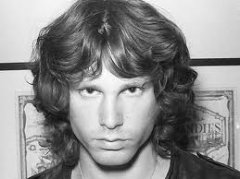 Between you and I, I have to say The
Doors of the 21st Century is one of the most clumsy band
names I could ever imagine.
Between you and I, I have to say The
Doors of the 21st Century is one of the most clumsy band
names I could ever imagine.
Well, Graham, between you and I, that is a mouthful! (laughs) I think it was the Doors of the 19th century personally, or the 18th when they did the old songs.
People always ask why I didn't join them and I say, 'Why would I want to do it with a Jimitator?'
If Jim shows up, I'm down. But I played with genius and that's enough for me.
Otherwise it's a bit like being in a cover band of your own band?
Yeah, that's good (laughs)
There is more on the Doors at Elsewhere here.

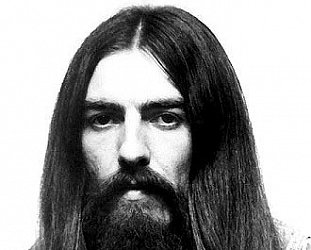
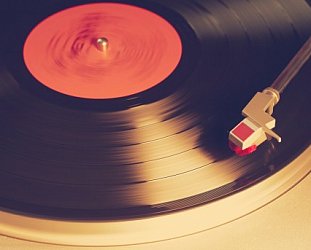
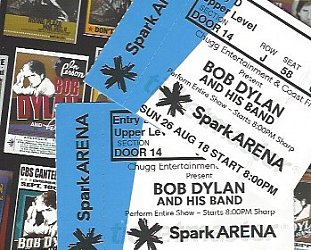
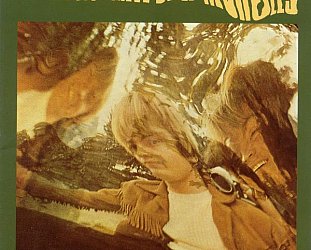
Earl - Feb 3, 2012
Really enjoyed this interview Graham. Densmore is often derided for his stance and I think that has a lot to do with the ol', he's just the drummer syndrome. But, as he says, The Doors were an accretion of musical talent that hit the spot and their music has stayed fast in enduring within the ear of the public. It was a big time for Densmore to, say the least; contains his creative input and I think he has every right to protect it - why wouldn't he? Great line about being a cover band of your own band.
SaveB - Feb 18, 2012
Great interview! I read and enjoyed Densmore's previous book; it presented a complicated, and probably more accurate, dynamic that occurred between the members than other books on the band have. I'm glad to see all three members still playing music, but the Doors without the original members shouldn't be considered the same band.
SaveI absolutely support musicians protecting how their material is utilized, although unfortunately most newer bands now are obligated to represent endorsements to some extent if they want to be included on bigger tours. It's sad that artists having to tie in their material with corporate capitalism is often presented as a virtue.
post a comment